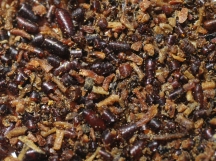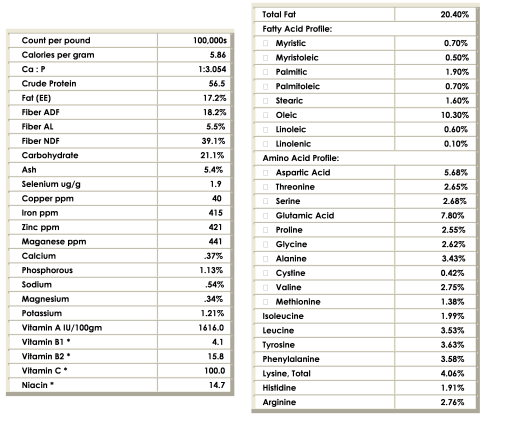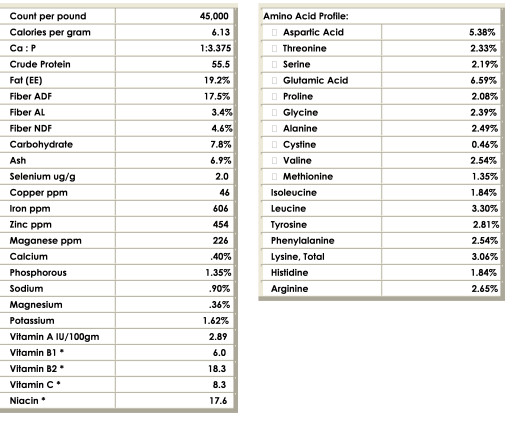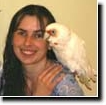
Insect BASICS™
Musca Domestica
A Premium Quality Feeder Insect
Insect-eating birds are generally brought into peak breeding condition by eating the foods that are best suited for rearing their young. The effect of that food is not limited to just its nutritional value. Abundant availability of the right food has a positive effect beyond nutritional concerns and has real environmental
and behavioral significance for captive breeding birds. So if you are breeding insect eating birds, your best chance for success in producing young is having that “abundant availability”. But if you don’t do “BUGS” or “WORMS” you now have another choice that will permit success.
Insect BASICS™, from ladygouldian.com, is a quality mixture of 100% dehydrated, ground Musca Domestica (the common housefly). It contains ground larvae and pupae as well as whole pupae. The manufacturer of Insect BASICS™ is different from their competitors because they are the only feed line produced by an insectaria, rather than a feed mill. They consider the insect component as the most important part of their products. The Musca domestica larvae are grown on an organic substrate in their insectaria. Their breeding colony represents over one hundred generations of their husbandry. For dehydration, the insects are heated in a low-pressure chamber so the moisture is rapidly removed and the nutrients kept in the best condition. Their preserved insects are UV reflective and retain the look of food to the bird’s eye.
A calcium to phosphorous ratio of 1:1 is supposed to be best for birds. A comparison of this ratio in the most common feeder insects:
- Musca domestica 1 : 3.4
- Crickets 1 : 2
- Mealworms 1 : 13.5
Directions for Feeding: Insect BASICS™ can be fed free choice in its own dish or added to your fresh boiled egg or birdie bread. As breeding season approaches, begin adding to the diet slowly, gradually increasing until the birds begin breeding. After chicks hatch Insect BASICS™ should be fed as much as parent birds need.
Product Analysis
Dehydrated Musca domestica Larvae

Dehydrated Musca domestica Pupae

|
|
|





